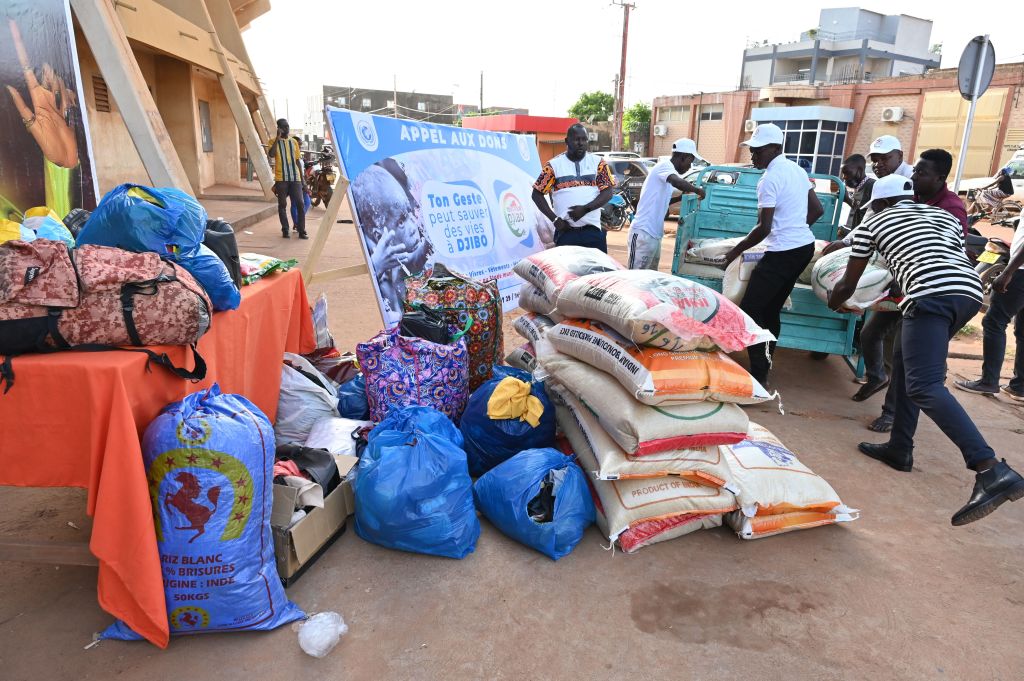1 Million in Burkina Faso Surviving Under Extremists’ Blockades
ADF STAFF
The fields around Djibo in northern Burkina Faso are empty: The farmers cannot leave the city to work them. Djibo, along with other communities in the countryside, is under blockade by militants who accuse residents of siding with the government.
The blockade has reduced Djibo’s food supplies by as much as 65% and crippled its health care system. At the same time, the community near the Malian border has become a refuge for people fleeing extremist violence elsewhere. Most of Djibo’s 360,000 residents are from surrounding communities; half are children.
Once an important commercial hub for the region, Djibo’s market is now a ghost town with three-quarters of its shops closed, according to Modou Diaw, regional vice president for the International Rescue Committee West Africa. Thousands of people are on the brink of starvation.
“The food security of the population is unbearable and requires immediate action from all actors who have the capacity to make a difference for these people in dire need of food access,” Diaw said in a statement released by the rescue committee.
Across Burkina Faso, three dozen communities are besieged by extremists. More than 2 million people have fled fighting between extremists and the junta-led government’s forces, which include lightly trained and lightly armed Volunteers for the Defense of the Fatherland.
Nearly 1 million people now live in communities blockaded by extremists. The blockades have destroyed local economies, left fields fallow and led to outbreaks of disease. Even the most basic goods are becoming hard to find.
“Our brothers and sisters, cousins and nephews, our elderly, they live in total poverty,” a teacher who escaped the eastern town of Pama told the New Humanitarian. Pama has been surrounded by extremists since last year.
Burkina Faso’s military staged two coups last year, deposing the civilian government that struggled to control the extremist threat. More than a year later, however, the majority of Burkina Faso’s territory remains outside the control of the government.
Food and other supplies that reach Djibo come in sporadic relief missions flown by United Nations helicopters. On rare occasions, military convoys breach the blockade to deliver needed supplies. Residents sometimes escape with the departing convoys, which are attacked by extremists.
Largely cut off from the outside world, residents of Djibo and other blockaded communities have turned to other sources for survival. They grow what food they can within the confines of their communities and pool resources to help each other. Those with family members outside the communities sometime receive money through mobile services when the telecommunications systems are working.
People have turned to eating wild foods, foraging in nearby forests for fruit and other edibles. Foraged seeds once used for soap are now put in sauces as a replacement for peanuts. Residents are also digging wells by their homes to replace the region’s sabotaged water lines and the public wells that extremists have poisoned.
Despite efforts to overcome the impacts of blockades, people such as Safi, a mother of five, continue to suffer. Safi’s husband was killed by extremists as the family fled to Djibo from their home in Yalanga, about 80 kilometers away.
“I had nothing left to eat for my children,” Safi told Doctors Without Borders.


Comments are closed.